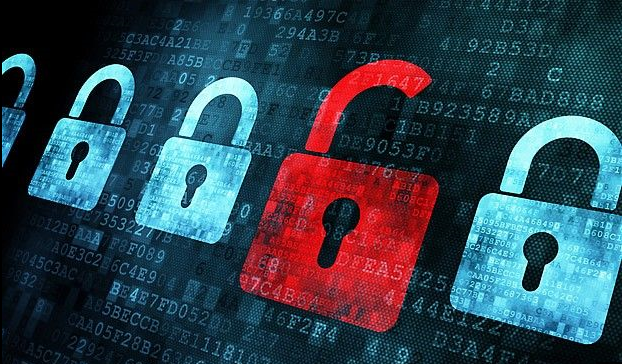The ACEDS conference informally kicked off yesterday with its pre-conference seminars and I enjoyed “talking shop” (from a blogging perspective) with Rob Robinson, Robin Thompson, Ari Kaplan and Tom O’Connor (among others). Now, that the appetizer is out of the way, let’s move on to the main course!
The conference is being held today and tomorrow at the Grand Hyatt New York (located at 109 East 42nd Street at Grand Central Terminal). I will be covering the conference for eDiscovery Daily and will provide info about the sessions before each day, so that attendees will know what’s available. And our parent company, CloudNine will be one of the exhibitors at the show, at booth #106. If you’re there, come by and see us!
Unlike other conferences where I have to search for the sessions that relate to eDiscovery, I don’t have to do that here – they all relate to eDiscovery, Information Governance or Cybersecurity. Here are the sessions for today:
9:00 – 10:00 AM:
Future Forward Stewardship of Privacy and Security
David Shonka, Acting General Counsel for the Federal Trade Commission, will focus on the Federal Trade Commission (FTC) and its future forward stewardship of privacy and security. Specific topics will include current regulatory frameworks, guidelines and recommendations, the FTC v. Wyndham Worldwide Corp. case and observations on the Commentary on Privacy and Information Security: Principles and Guidelines for Lawyers, Law Firms, and Other Legal Service Providers published by The Sedona Conference™.
Speaker: David Shonka, Acting General Counsel for the Federal Trade Commission.
10:30 – 11:30 AM:
The Art & Science of Computer Forensics: Why Hillary Clinton’s Email & Tom Brady’s Cell Phone Matter
Ever wonder what a data forensic examiner is looking for or what they see during an investigation? Experienced forensic examiners will be on-hand to show you what digital evidence looks like, down to the bits and bytes of every piece of information. They will show you what is stored in a modern computer system, what metadata reveals, and what you can reasonably expect to find in a modern digital forensic examination. Other topics covered are:
- Which recovered files/fragments are considered fact testimony vs. opinion testimony
- A primer on getting your expert accepted by the court.
- What written reports should look like
- What are cost expectations for forensic examinations and what are realistic examination timelines in 2016.
Speakers: Christine Chalstrom, Founder, Chief Executive Officer, and President, Shepherd Data Services; David A. Greetham, CFE, Vice President, e-Discovery Operations, Ricoh Americas Corporation; Calvin Weeks, Computer Forensics Manager, Eide Bailly LLP; Stephanie L. Giammarco, Partner, BDO Consulting, New York.
The Secrets No One Tells You: Taking Control of Your Time, Projects, Meetings, and Other Workplace Time-Stealers
We all live under pressure. Clients, judges, attorneys, and bosses issue constant and often contradictory instructions. It’s a recipe for stress, pressure, dissatisfaction – unless you know Bill and Steve’s excellent survival secrets. In this high-energy, interactive session, they’ll share tips, tricks, and techniques for productive meetings, managing email and interruptions, kicking projects into gear, even figuring out what clients actually want. Steve and Bill will show you not just how to survive, but how to thrive in this environment. Bonus: bring your own questions and problems for some on-the-spot suggestions on taking control of a hectic work environment.
Speakers: Bill Speros, Attorney Consulting in Evidence Management, Speros & Associates, LLC; Steven B. Levy, CEO, Lexician.
Ethics Rules for the Tech Attorney
We all know that lawyers can’t be Luddites anymore. ABA Model Rule, Rule 1.1 says lawyers should keep up with changes in the law and its practice, “including the benefits and risks associated with relevant technology.” But technical competence means a lot more than just knowing a few buzzwords and phrases. This panel that includes bar association ethics administrators, will get into the practical technical considerations every lawyer must understand and be able to critically assess in the course of representing a client in today’s digital world.
Speakers: Kiriaki Tourikis, Vice President, Assistant General Counsel, JPMorgan Chase; Ronald J. Hedges, Principal, Ronald J. Hedges LLC; Michael Simon, Principal of Seventh Samurai LLC.
Hiring & Retaining E-Discovery Leaders
In budget constrained environments, how do you attract and retain top talent? In ethically nuanced situations, how do you create an open, supportive environment that challenges people to be better? How do you support your people while holding them accountable? While it is easier to spot educational opportunities for hard skills, how do you expand the leadership potential of your team?
Speakers: David Cowen, President and Managing Director, The Cowen Group; Kenya Dixon, Assistant Director, Division of Litigation Technology and Analysis, Federal Trade Commission.
12:00 – 12:45 PM:
Piecing the Puzzle Together: Understanding How Associations can Enhance Your Career
Looking at the number of associations available, you may often find yourself trying to figure out what the benefit of joining each is and how each apart or together can most benefit your career. During this session, leaders from EDRM, Legal Technology Professionals Institute, ILTA, Women in eDiscovery, and others will give you a look into how each of them provide you the benefits of professional development, networking, and mentoring; how the benefits they provide work with other organizations and associations; and what they see the future holding.
Speakers: Beth Finkle, Executive Director, Women in e–Discovery; Bryn Bowen, CRM, Director of Information Services, Schulte Roth & Zabel; Stephen Dooley, Assistant Director of Electronic Discovery & Litigation Support, Sullivan & Cromwell LLP; Maribel Rivera, Principal, Maribel Rivera Marketing; George Socha, President & Founder, Socha Consulting, LLC; Eric Mandel, Chair and President, Legal Technology Professionals Institute; Mary Mack, Executive Director, ACEDS.
2:00 – 3:00 PM:
Tracking Terrorism in the Digital Age & Its Lessons for EDiscovery – A Technical Approach
The FBI and Apple battle over how to unlock an iPhone 5C belonging to Syed Farook, the San Bernardino terror shooter is just one small piece of a larger fight over digital privacy, terrorism, and security that will not be settled anytime soon.
The recent terror attacks in California, Paris, Turkey, Beirut, and elsewhere are a terrible human tragedy and we join the worldwide condemnation and offer our deepest sympathies to the victims. But as computer forensics specialists, we are now at the forefront of the fight to bring these criminals to justice, and seek to help advance the science and understanding of terror networks so as to prevent future atrocities.
Join us at the ACEDS E-Discovery Conference in New York City as our expert discusses how to battle terrorism in the digital realm. In this session, we will discuss ominous trends, including:
- Why terrorist plotters are able to avoid leaving digital clues or traceable evidence.
- How encrypted communications tools are making it easier than ever for parties to hide, destroy, and obscure their data trails online.
- Which encrypted communications tools are making it easier than ever for parties to hide, destroy, and obscure their data trails online.
- How to break terrorism rings without violating privacy rights for the rest of us.
Speakers: Roy Zur, CEO, Cybint.
E-Discovery Project Management: Ask Forgiveness, Not Permission
Undertaking an organization-wide legal project management or PMO initiative within a corporate legal department, at a law firm or a service provider is not something to be undertaken lightly. The executive level buy-in, the resources needed, and the patience required can all be daunting. But quite apart from applying project management to overall operations, the question presented to this panel is whether project management methodologies may be applied in more discreet circumstances; specifically, to the e-discovery processes of the EDRM. Several industry experts will discuss how project management may be used to maximize efficiency, control risk, and produce sound, defensible results across the EDRM without the high-level buy-in needed for an organization-wide initiative. Attendees will take away some best practices in project management and learn the small, important things that will make your electronic discovery projects successful.
Speakers: Jason D. Wallach, Partner, Blank Rome LLP; Albert J. Buckwalter, Director – Litigation Support Group, Department of Justice – Civil Rights Division; Mike Quartararo, Director of Litigation Support Services, Stroock & Stroock & Lavan LLP.
The Limits of Proportionality
At the 2015 ACEDS E-Discovery Conference, Judge Grimm, a leading architect and proponent of the changes to FRCP 26(b), told the audience that proportionality had been “lost” in the old rules. He also argued that the new amendments to the Federal Rules will make it more likely that judges will actively enforce the requirement. Even US Supreme Court Justice Roberts’ recently-issued “State of the Judiciary” report for 2016 emphasized the importance of the new proportionality rules.
Speakers: Bill Millican, Corporate Director of Training and Development, Xact Data Discovery; Alex Ponce de Leon, Discovery Counsel, Google, Inc.; Hon. Xavier Rodriguez, US District Judge, US District Court, Western District of Texas.
What Your Data Governance Team Can Do For You
In pursuit of e-discovery excellence, the data itself can present several challenges. As companies encounter litigation requiring data collection, at the same time, companies are encountering a renaissance of insight and business value that can be derived from the very same data. The team often at the helm of overseeing data management activities in pursuit of business value is Enterprise Data Governance. Data Governance teams set policy, identify accountability for improving data, and ensure the organizations’ overall treatment of data is improving. If you are asking any of the following as an e-discovery professional, your data governance team may be able to help you.
- Where is the data I need? What does this stuff mean? (Metadata)
- Is this data any good? Should I be using it? (Data Quality)
- Who is responsible for this data set? (Stewardship)
Speaker: Laura Hahn, Senior Manager, Enterprise Data Governance, TD Ameritrade.
Financial Industry Roundtable (Invitation Only)
Closed session to practitioners in the financial industry to have candid conversations about the solutions and challenges in this particular market. This session will not be recorded and no materials will be distributed. Possible topics include: voice, archiving, trade reconciliation, Advanced use of TAR and suggestions are welcome.
Speaker: Jason Velasco, eDiscovery Engineering and Architecture, Deutsche Bank.
Using Analytics & Visualizations to Gain Better Insight into Your Data
Big Data plays a big role in litigation for many law firms and organizations. Having the ability to cull down your data earlier in the litigation cycle enables your firm or organization to work more efficiently and competitively. Technology is increasingly playing a key role in helping firms and organizations effectively identify and manage the data most important to your litigation. This session will discuss the emerging trends around analytics in e-Discovery, and how your firm or organization can implement best practices to ensure the highest quality results at a lower cost than traditional document reviews.
Speaker: Dean Kuhlmann, Vice President of Business Development, Brainspace.
3:30 – 4:30 PM:
Defending and Defeating TAR
This session focuses on three sets of TAR’s purported capabilities from two alternative perspectives: How to defeat TAR’s use or to defend it.
It is led by Judge Ron Hedges who describes the challenge and invites observations from three attorneys who have lead e-discovery projects for a combined 50+ years—and they live to tell about it—and invites observations from you.
Speakers: Gina Sansone, Manager of Litigation Support, AXINN; Bill Speros, Attorney Consulting in Evidence Management, Speros & Associates, LLC; Ronald J. Hedges, Principal, Ronald J. Hedges LLC; Adam Wright Strayer, Esq., Director leading Technology-Assisted Review.
Managing Your Project Manager’s Project Manager: Who’s On First?
Inevitably in any e-discovery matter, there can be as many as three project managers handling a case at any given time. Between the client, law firm and service provider, it’s often difficult to determine who should take the lead, direct traffic, manage budgets and most importantly, manage people. Steven Levy, author of Legal Project Management: Control Cost, Meet Schedules, Manage Risks and Maintain Sanity, will moderate this lively and challenging debate among project managers from all three perspectives to help organizations understand how to work together and manage the e-discovery process, lead the charge, understand boundaries, manage budgets and, most importantly, play nice together in the sandbox.
Speakers: Angelique Harris, Litigation Services Manager, Davis Polk & Wardwell LLP; Todd Hartley, Counsel, Nissan North America, Inc.; Nick Reizen, Vice President of E-Discovery, Xact Data Discovery; Steven B. Levy, CEO, Lexician.
E-Discovery & Compliance
Contributing authors to the Thompson Reuters West treatise, eDiscovery for Corporate Counsel, will lead a spirited discussion of eDiscovery trends with a focus on how they affect the practice of corporate legal departments, including the overlap with compliance.
Speakers: Ignatius Grande, Senior E-Discovery Attorney/Director of Practice Support at Hughes Hubbard & Reed LLP; Alitia Faccone, Chief Marketing Officer at Wilentz, Goldman & Sptizer, P.C.; Philip H. Cohen, Shareholder, Greenberg Traurig, LLP; Kenneth N. Rashbaum, Partner, Barton LLP; Gregory V. Bell, Principal Attorney Editor, Thomson Reuters; Carole Basri, Adjunct Professor for Corporate Compliance at Fordham Law School.
Solving the Privilege Problem
The FRCP and the Federal Rules of Evidence (FRE) have given lawyers tools to avoid inadvertently waiving privilege in most e-discovery circumstances. However, in many cases, including some involving tech-savvy litigants like Facebook, Apple, and Samsung, parties have lost the privilege protection. This session will help parties avoid these mistakes once and for all. Topics include:
- Handling privilege review in light of new Rules, case law, and technology
- Sample 502, clawback and protective orders
- How to obtain a workable 502(d) order
Speakers: James L. Bernard, Partner, Stroock & Stroock & Lavan LLP; Helen Bergman Moure, Principal, Lex Aperta; Philip Favro, Consultant, Discovery & Information Governance, Driven, Inc..
Hope to see you there!
So, what do you think? Are you planning to attend ACEDS this year? Please share any comments you might have or if you’d like to know more about a particular topic.
Disclaimer: The views represented herein are exclusively the views of the author, and do not necessarily represent the views held by CloudNine. eDiscovery Daily is made available by CloudNine solely for educational purposes to provide general information about general eDiscovery principles and not to provide specific legal advice applicable to any particular circumstance. eDiscovery Daily should not be used as a substitute for competent legal advice from a lawyer you have retained and who has agreed to represent you.







